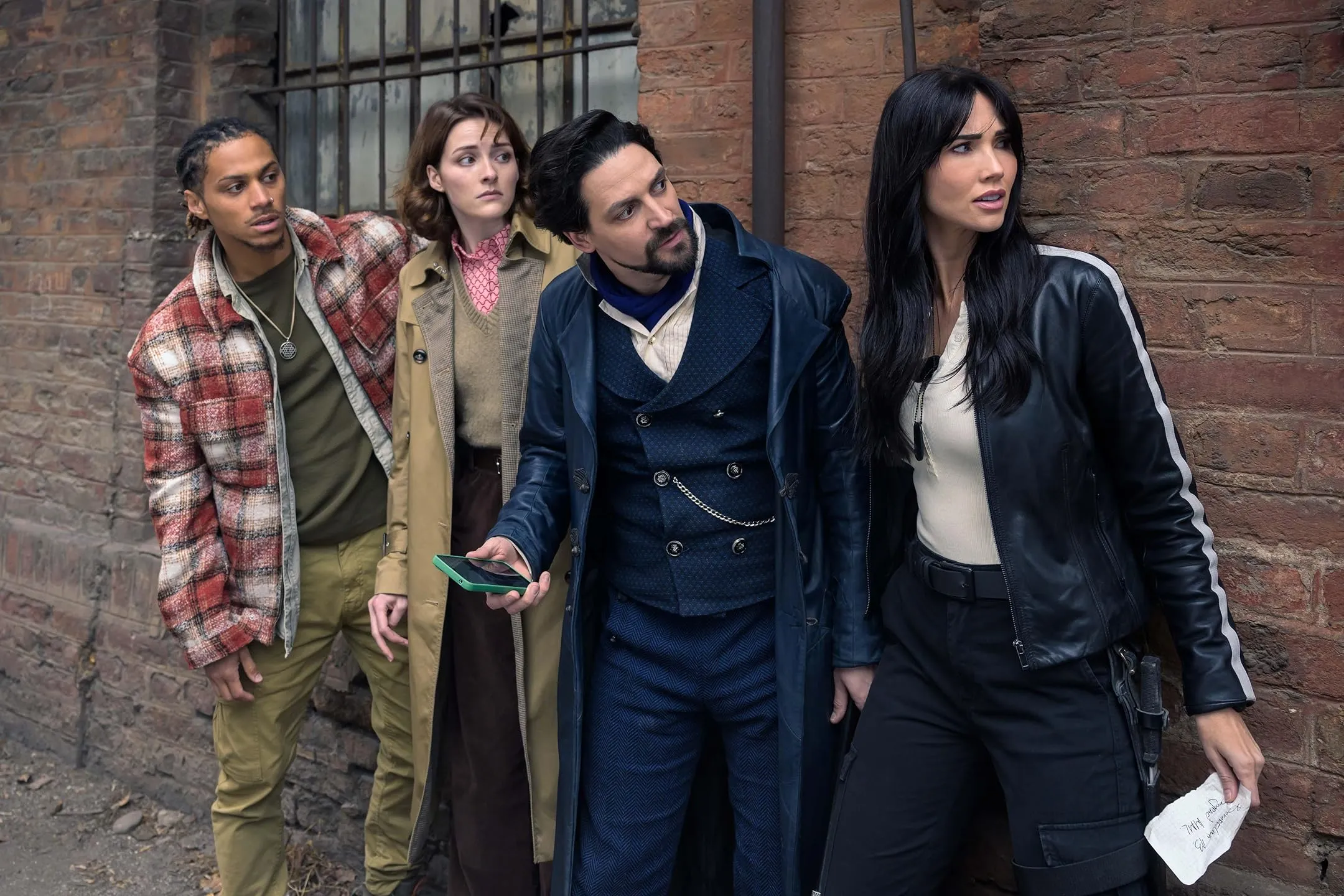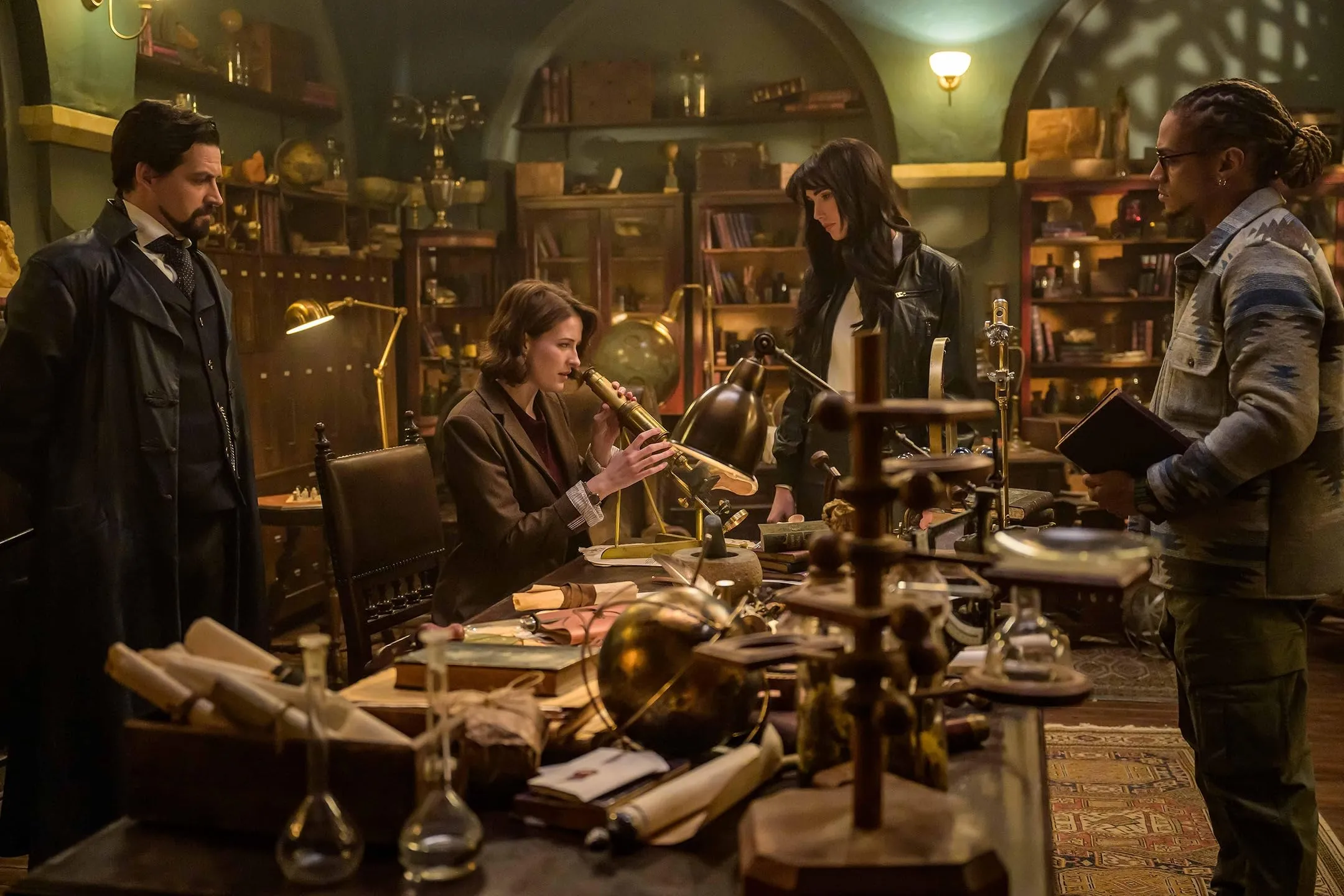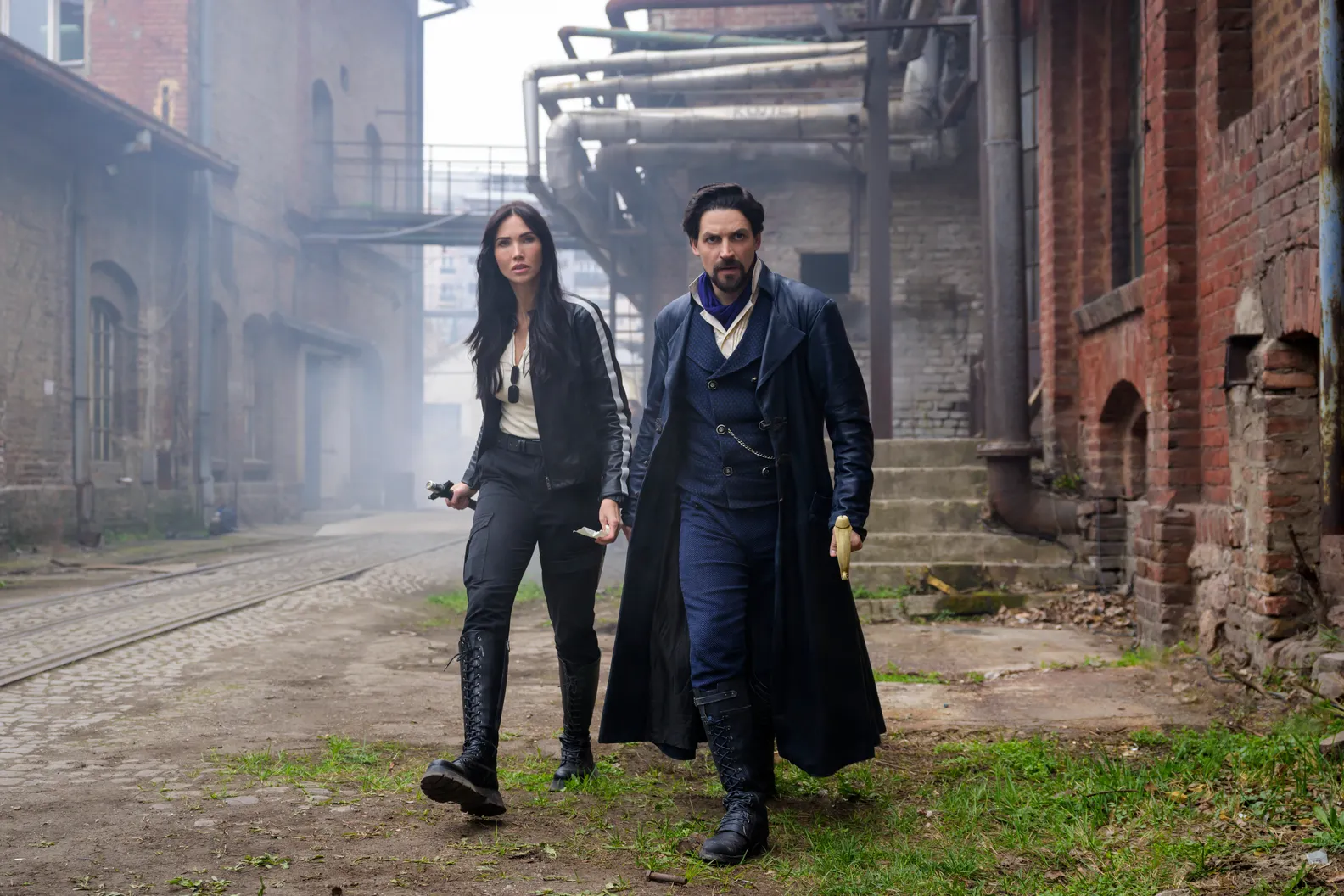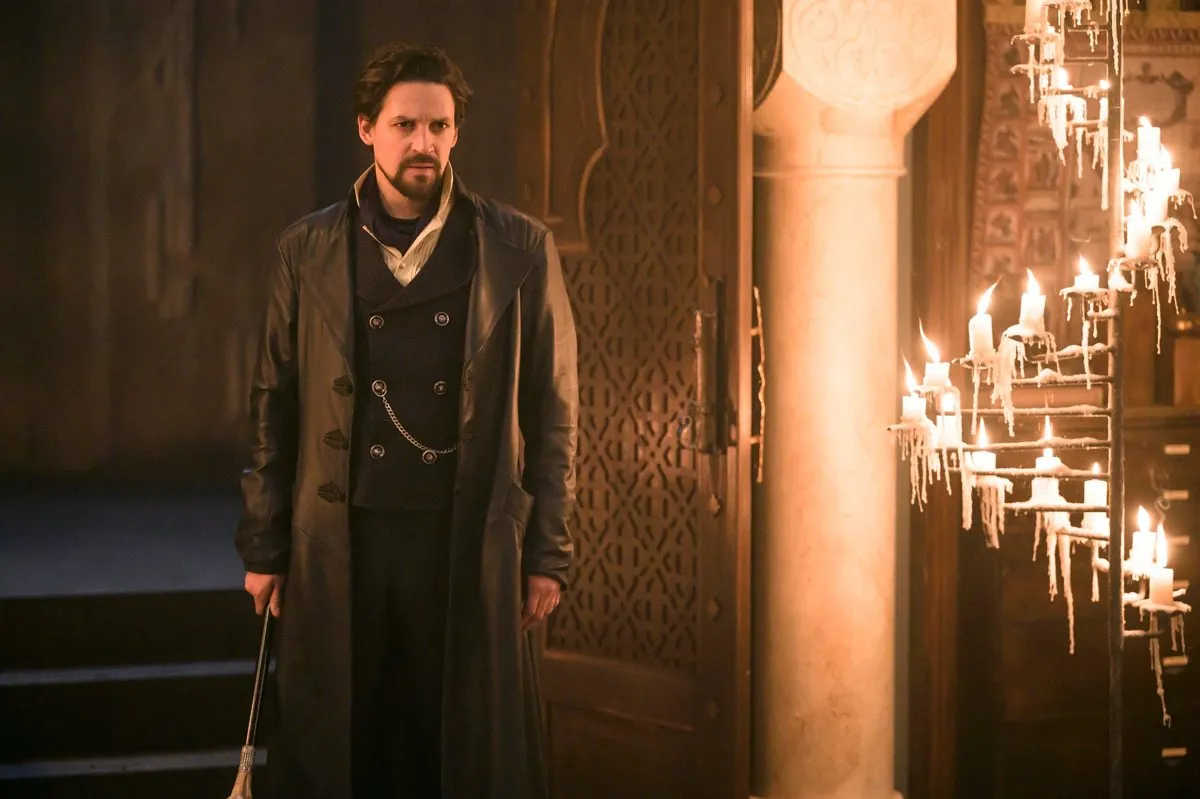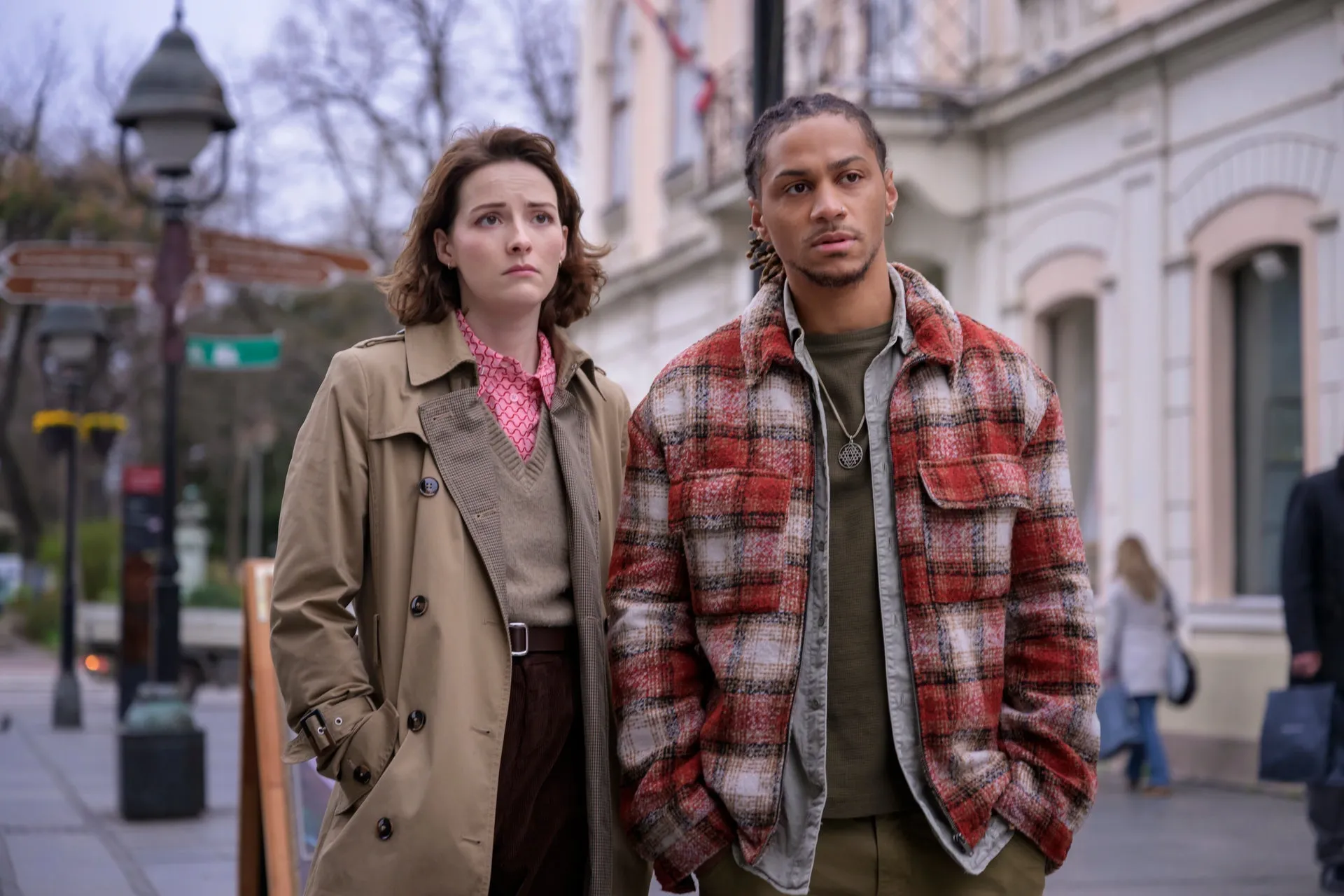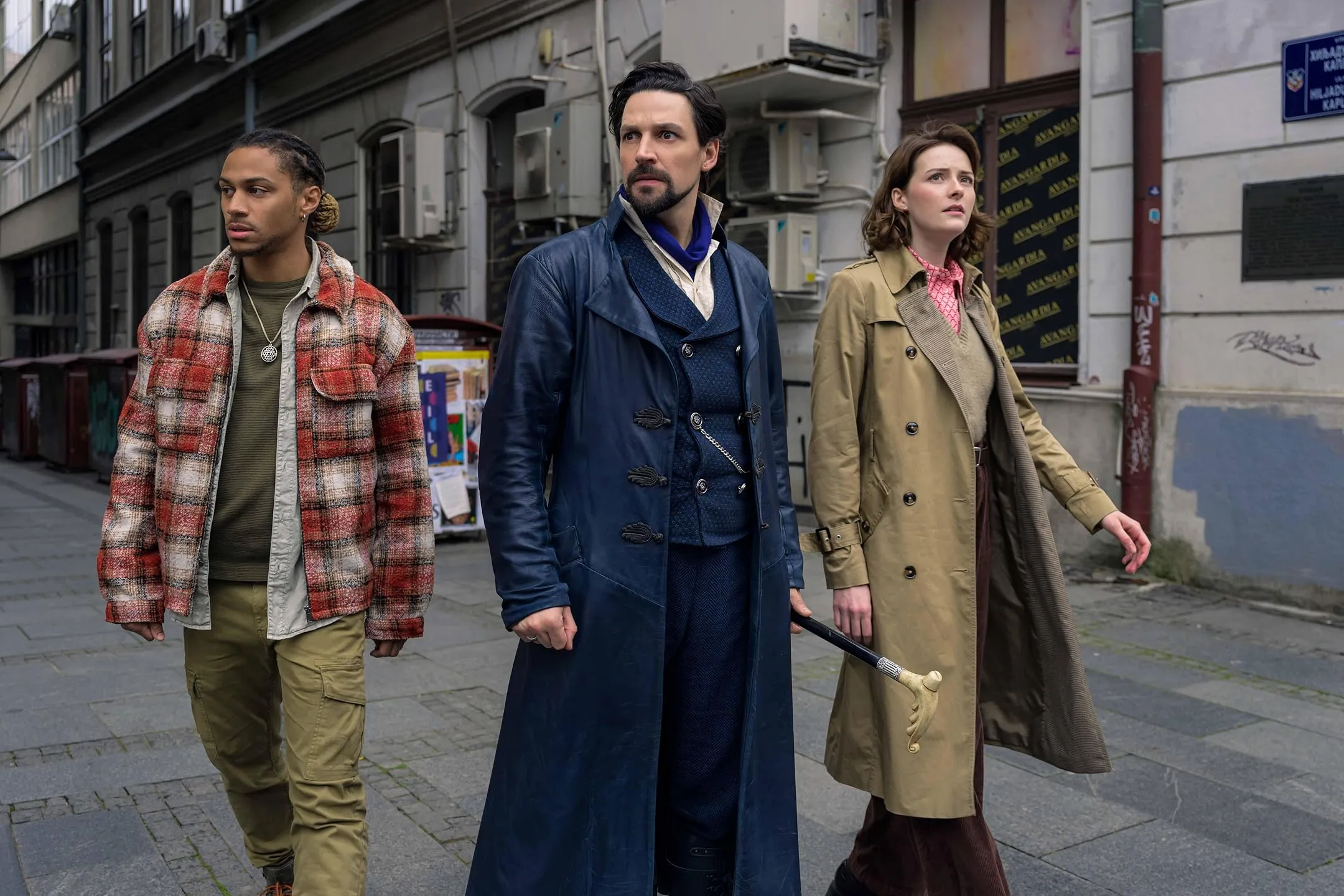The Librarians: The Next Chapter thrusts viewers into the shadowy halls of a centuries-old Annex repurposed as a Belgrade museum, where a fresh ensemble of artifact guardians wrestles with spells and smartphones alike. At its heart is Vikram Chamberlain, a 19th-century custodian abruptly yanked into 2025 by a misfired incantation—his disorientation echoes broader cultural frictions between tradition and innovation.
Under Dean Devlin’s stewardship, this spin-off honors the franchise’s heritage while embracing a monster-of-the-week rhythm that recalls the early comfort-food thrills of 1990s fantasy television.
Here, magic coexists with modernity: arcane relics share shelf space with interactive exhibits, and mathematical theorems serve as an unlikely conduit for sorcery. The tone balances earnest wonder and wry self-awareness, inviting both seasoned fans and curious newcomers to appreciate the mechanics of myth in a digital age.
Devlin’s legacy as a producer of both blockbuster spectacles and the original Librarians films infuses the series with a cinematic confidence, even as it opts for cable-friendly intimacy. In relocating the Library’s influence to Eastern Europe, the show gestures toward a more global tapestry of lore—signaling that, in a fragmented media landscape, stories of collective stewardship still resonate across borders.
Roots and Realms: Reimagining the Enchanted Archive
From a mid-19th-century stronghold to a twenty-first-century museum, The Librarians: The Next Chapter stakes its claim on history by mining the year 1847 for narrative propulsion. Vikram Chamberlain’s accidental leap through time isn’t just a trope—it underscores the chasm between eras of empire and our digitally connected present, inviting viewers to consider how progress rewrites identity. His genteel manners and Victorian moral code bump against contemporary imperatives, holding up a mirror to our own disjointed relationship with tradition.
Perched atop Belgrade’s skyline, the Annex-cum-castle functions as more than a striking backdrop; it becomes a global hub in Devlin’s expanded Library universe. By situating this magical nexus in Eastern Europe rather than a familiar Western capital, the series nods to a more inclusive mythic cartography—one that hints at untapped folkloric wells beyond Hollywood’s usual orbit. This spatial shift signals streaming’s power to decentralize stories, privileging fresh landscapes over the same old fantasy provinces.
Magic here obeys a hybrid logic: artifacts pulse with arcane energy, yet their activation often hinges on mathematical formulas or historical research. In framing enchantment as a dialog between science and superstition, the show gestures toward real-world debates over knowledge ownership and cultural patrimony. When a relic misfires, it isn’t just fantasy collateral—it’s a metaphor for misuse of power, reminding us that even well-meaning custodians can unleash unintended chaos.
Structurally, The Next Chapter leans into an episodic rhythm—each installment delivers a neatly packaged caper—while threading in Chamberlain’s quest for return and Lysa’s grief over her ancestral home. This balance of standalone adventures and subtle season-long arcs exemplifies a modern streaming trend: satisfying binge habits without abandoning the comforting pulse of appointment-to-appointment viewing. Episodes pivot from demon hunts in museum halls to forensic dives into lost manuscripts, maintaining brisk pacing while planting serialized breadcrumbs that reward patient viewers.
Casting the New Pantheon: Performance Dynamics and Cultural Resonance
At the center of this revival stands Vikram Chamberlain (Callum McGowan), whose fish-out-of-time journey unfolds with a blend of gallantry and rueful wit. McGowan navigates the chasm between Victorian decorum and 21st-century irreverence, often using a single raised eyebrow to conjure both humor and pathos. His rapport with the ensemble—whether trading barbs over smartphone etiquette or trading confidences in candlelit vaults—anchors the series’ emotional core and quietly underscores conversations about cultural dislocation in our globalized era.
Opposite him, Olivia Morris’s Lysa Pascal reframes the archetype of the “brainy sidekick” with comforting complexity. As a mathematician whose algorithms unlock more than just numbers, she embodies a form of underrepresented female intellect on genre television. Her dry, precise humor—like lecturing a possessed automaton on differential equations—injects levity while signaling a broader shift toward showcasing women’s expertise in STEM roles.
Bluey Robinson’s Connor Green offers meta-commentary on our conspiracy-hungry moment. His viral-video delivery and wide-eyed enthusiasm make him both the show’s designated everyperson and a critique of online sensationalism. Throughout the season, Connor evolves from clickbait chaser to earnest collaborator, illustrating how communal purpose can redeem isolated obsessions.
Jessica Green’s Charlie Cornwall anchors the team’s muscle with a Guardian-in-training arc that highlights female physical agency. Her evolution—from taut, no-nonsense combatant to empathetic leader—mirrors a societal appetite for characters who defy restrictive gender norms without sacrificing toughness.
Finally, Caroline Loncq’s Elaine Astalot and Christian Kane’s Jacob Stone resonate as connective tissue. Elaine’s sardonic commentary—often delivered with the weight of centuries—points to institutional inertia in the face of change, while Stone’s cameo reminds viewers that legacy characters still matter in an industry perpetually chasing the next big reinvention.
Plot Mechanics: Weaving Episodic Comfort with Serialized Depth
The pilot of The Librarians: The Next Chapter wastes no time in laying down its narrative cards: a temporal mishap thrusts 19th-century Librarian Vikram Chamberlain into a 21st-century Annex, while the discovery of a fractured relic establishes clear stakes—if artifacts fall into the wrong hands, chaos follows. This brisk setup signals a recognition of contemporary audiences’ shrinking attention spans, even as it invites deeper questions about cultural dislocation and stewardship of shared heritage.
By midseason, stakes escalate elegantly: Chamberlain’s longing for home dovetails with Lysa’s fight to preserve her family legacy, and standalone capers give way to a creeping sense that every recovered artifact inches the group closer to a hidden, season-defining threat. The series resists the trap of requiring endless binges—each monster-of-the-week adventure resolves satisfyingly—yet it sprinkles serialized breadcrumbs, from whispered allusions to Vikram’s past to Lysa’s mounting doubts, ensuring viewers feel rewarded for tuning in weekly and for streaming back-to-back.
Cliffhangers land with precision: a vault door ominously closes on an unleashed entity here, a confidant’s tearful confession there—moments engineered to provoke watercooler speculation and algorithmic recommendations alike. Emotional beats, whether in whispered exchanges or grand library set-pieces, maintain momentum without overreliance on spectacle. In doing so, the show models a trend toward hybrid pacing, one that acknowledges both the comfort of episodic closure and the cultural clout of serialized storytelling in the streaming era.
Crafting Worlds: Aesthetic Alchemy and Cultural Canvas
The Librarians: The Next Chapter leverages Belgrade’s storied architecture as more than a backdrop—it becomes a co-protagonist, its Baroque facades and medieval alleyways lending authenticity to each artifact heist. Wide aerial shots juxtapose the Annex’s looming castle silhouette against a neon-tinted skyline, signaling a television trend where streaming series tap into underexplored locales to broaden their global appeal.
When magic ignites, practical effects fuse seamlessly with digital enhancements: a relic’s glow spills into the frame without betraying the CGI seam, while summoned specters materialize with tactile textures that hint at budgetary restraint and ingenuity in equal measure. Costume design furthers the narrative dialogue between eras—Vikram’s brocade waistcoat, threadbare at the seams, contrasts sharply with Lysa’s minimalist jumpsuit, a subtle commentary on how history and progress coexist uneasily.
Similarly, set dressing oscillates between dusty archives strewn with parchment and sleek, touchscreen control panels, mirroring the show’s thematic tension between antiquity and innovation. Composer Trevor Morris layers orchestral motifs with electronic pulses, anchoring dramatic reveals in classical gravitas while propelling chase sequences with synth-driven urgency.
Sound design underscores each incantation with reverberations that feel lived-in, as if the Annex itself hums with arcane energy. In marrying regional color with genre conventions, the series points to a future where production values are measured not by spectacle alone but by thoughtful integration of place, craft, and cultural resonance.
Conjuring Collective Spirit: Themes & Tone
At its core, The Next Chapter threads the concept of chosen family through its magical capers: when artifacts threaten global upheaval, disparate individuals—an out-of-time librarian, a number-crunching savant, a conspiracy vlogger, and a trainee guardian—forge bonds under pressure that eclipse any solo heroics. Their interdependence models a social justice ethos, suggesting that community resilience can outmatch lone brilliance.
The series also stages a lively debate between science and sorcery, treating equations and ancient incantations as two dialects of the same language. When Lysa Pascal invokes calculus to stabilize a cursed relic, it’s more than a clever plot device; it underscores shifting cultural norms that celebrate women’s intellectual authority in traditionally male-dominated fields. In these moments, The Next Chapter subtly challenges genre conventions that relegate technical expertise to background exposition.
In a world starved for optimism, the show’s buoyant blend of whimsy and earnest stakes offers hope as both narrative engine and emotional refuge. Its escapist adventures—whether thwarting a memory-stealing gem or exorcising a Balkan demon—resonate especially in times of societal division, affirming fantasy’s role as collective therapy.
Finally, by passing the torch from the franchise’s original champions to a fresh ensemble, the series embraces renewal without erasing its lineage. Christian Kane’s brief return as Jacob Stone winks at legacy while underscoring that transformation, not repetition, sustains cultural relevance.
Spotlight on Signature Capers
From its opening gambit, “A New Annex” stakes its claim as more than a fantasy pilot—it’s a cultural handshake, blending imperial grandeur with 21st-century hustle. Viewers meet Vikram Chamberlain’s startled adjustment to smartphones and streaming algorithms, an ironic nod to how legacy institutions scramble to stay relevant in a digital age. This inaugural episode lays thematic groundwork—team cohesion, artifact ethics, and the intergenerational tug between preservation and progress—while signaling a trend in streaming dramas that favor world-building over cliffhanger overload.
Midseason, the “Noon Witch” ballet caper elevates ritualized folklore into kinetic spectacle. Here, tradition pirouettes alongside modern choreography as a cursed ballerina haunts city stages. It’s a masterstroke of tonal balance: the eerie folklore remembrance underscores how marginalized myths persist within mainstream culture, while the episode’s brisk humor reminds us that genre television can honor heritage without veering into reverence porn.
In the penultimate chapter, a memory-stealing crystal forces Lysa to confront personal loss, weaving her mathematical logic into emotional reckoning. This artifact-driven plot crystallizes character arcs—Connor’s viral bravado gives way to genuine empathy, and Charlie’s Guardian training finds its existential purpose. Guest turns—including Christian Kane’s Jacob Stone, briefly reappearing like a spectral mentor—remind longtime fans that renewal and legacy need not conflict. Each standout installment exemplifies a broader industry shift: streaming series now must juggle mythic ambition, sociocultural commentary, and binge-friendly execution to earn their place in a crowded landscape.
Resonance Beyond the Stacks
The Next Chapter strikes a rare equilibrium between caper-driven levity and moments of genuine poignancy—an artifact heist that elicits laughs one minute can segue into an unexpectedly tender glimpse of cultural dislocation the next. Newcomers find entry points in its brisk pacing and self-aware humor, while franchise devotees will appreciate the respectful nods to legacy characters and thematic through-lines about stewardship and collective memory.
By knitting episodic thrills to a season-long emotional undercurrent—Vikram’s homesickness, Lysa’s reckoning with her past, Connor’s quest for purpose—the show models a hybrid narrative blueprint that streaming platforms increasingly favor: a format flexible enough for casual binges yet layered enough to sustain in-depth cultural readings.
As television turns toward more globally dispersed settings and diverse creative teams, this Belgrade-set revival gestures at a future where genre series serve as both escapist balm and mirror to societal tensions. With its blend of whimsy and critical awareness, The Next Chapter could well inspire other franchises to reforge familiar worlds through fresh cultural lenses.
The Librarians: The Next Chapter premiered on TNT on May 25, 2025, with a 12-episode first season, and a second season has already been ordered.
Full Credits
Director: Sandra Mitrovic, Milan Todorovic,
Writers: Dean Devlin, John Rogers, Kate Rorick, Tom MacRae, Gary Rosen, Rebecca Rosenberg, Sean Persaud, Sinead Persaud
Executive Producers: Dean Devlin, Marc Roskin, Rachel Olschan-Wilson, Noah Wyle
Cast: Callum McGowan (Vikram Chamberlain), Jessica Green (Charlie Cornwall), Olivia Morris (Lysa Pascal), Bluey Robinson (Connor Green), Caroline Loncq (Elaine Astalot), Christian Kane (Jacob Stone)
The Review
The Librarians: The Next Chapter Season 1
The Librarians: The Next Chapter revitalizes the franchise with a spirited ensemble, thoughtful themes, and a global perspective that feels both fresh and familiar. Its blend of standalone capers and serialized arcs makes it accessible for newcomers and rewarding for longtime fans. With strong performances, cultural resonance, and smart world-building, it charts a promising path for genre television.
PROS
- Engaging blend of episodic adventure and season-long arcs
- Strong ensemble cast with nuanced performances
- Fresh international setting adds global flavor
- Thoughtful balance of science and magic
- Meaningful themes of community and legacy
CONS
- Monster-of-the-week format can feel formulaic
- Midseason pacing dips in a few episodes
- Underutilization of legacy characters beyond cameos
- Stakes sometimes feel low for high-concept magic
- Reliance on familiar genre tropes







































